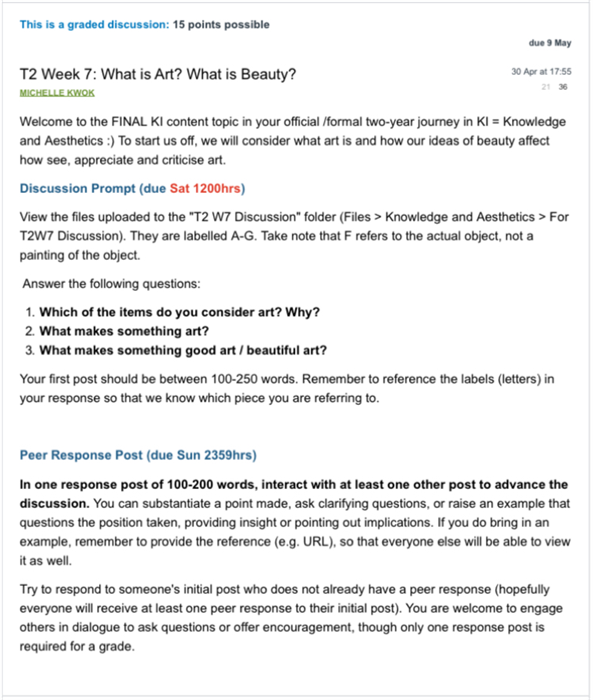What Our Subject is About
Knowledge & Inquiry (KI) covers the theoretical aspects of knowledge construction (epistemology) and the questions set will require candidates to draw on knowledge they have gained during their study of the following key questions: (1) Why ask questions? (2) What is knowledge? (3) How is knowledge constructed? (4) What makes knowledge valid? (5) How is knowledge affected by society? (6) How should knowledge be used?
The KI paper also gives candidates the opportunity to hone and demonstrate critical reading and thinking skills by applying their knowledge and understanding of what they have studied to unseen stimulus material.
This subject also gives candidates the opportunity to select a topic of their choice, related to an area of the nature and construction of knowledge outlined in the syllabus that they have studied, and carry out independent research on that topic.

A sample of a forum discussion where Y6 KI students each week was tasked to reply to a discussion post, and respond to at least one classmate to advance the discussion. In KI, topics such as art and beauty are explored, so that students are able to understand the nature and construction of knowledge in our society.
What We Do To Develop Students' Interest/Abilities